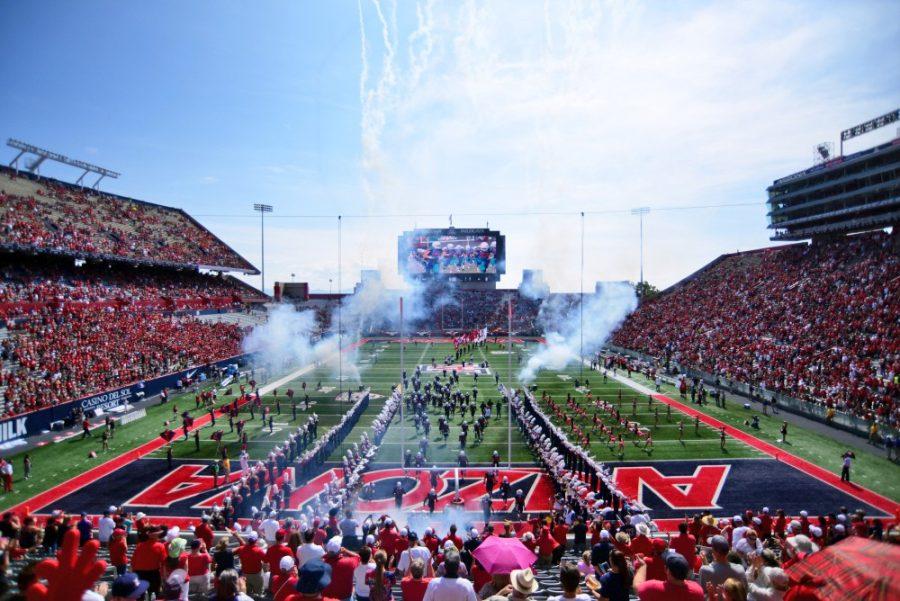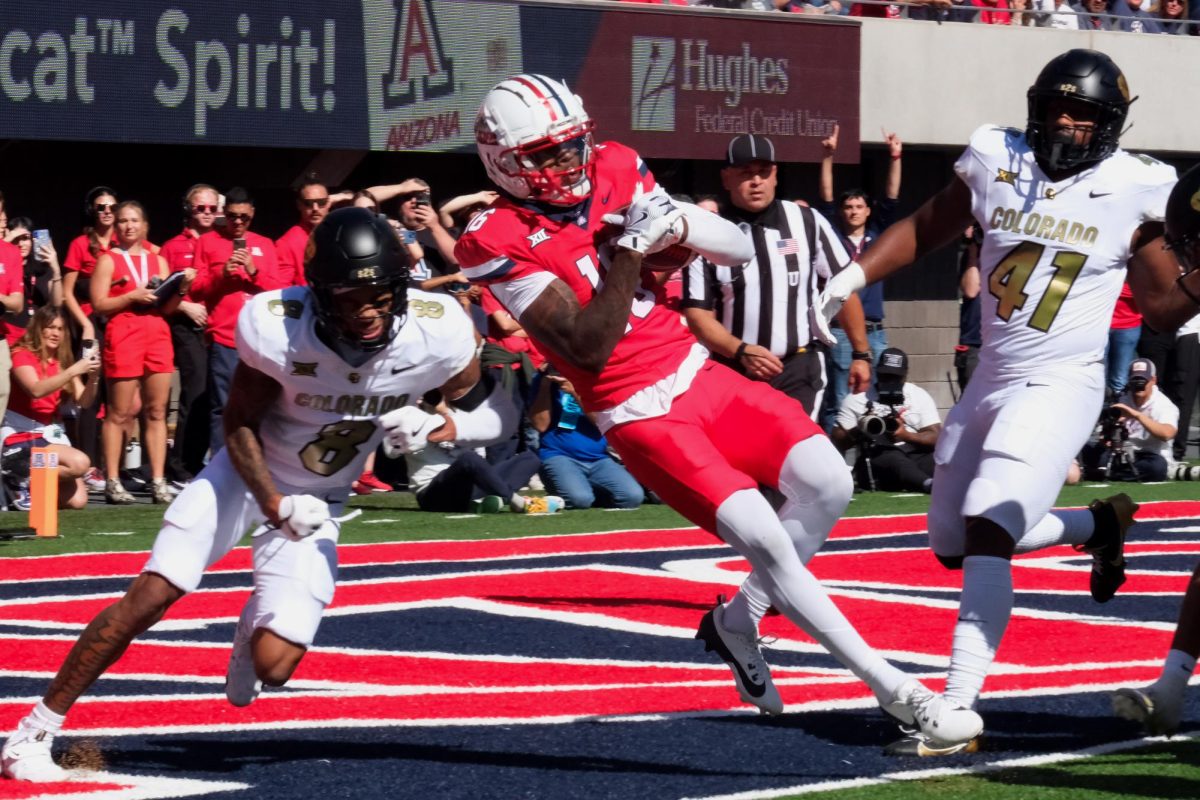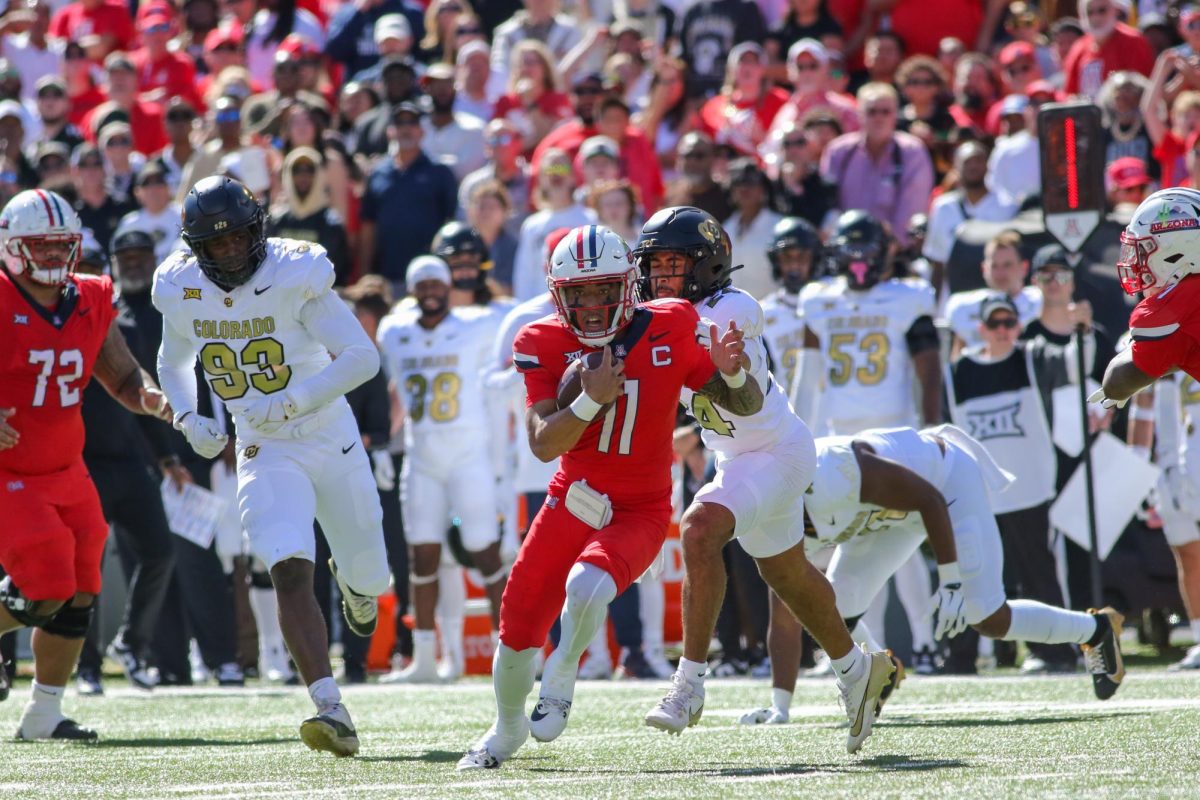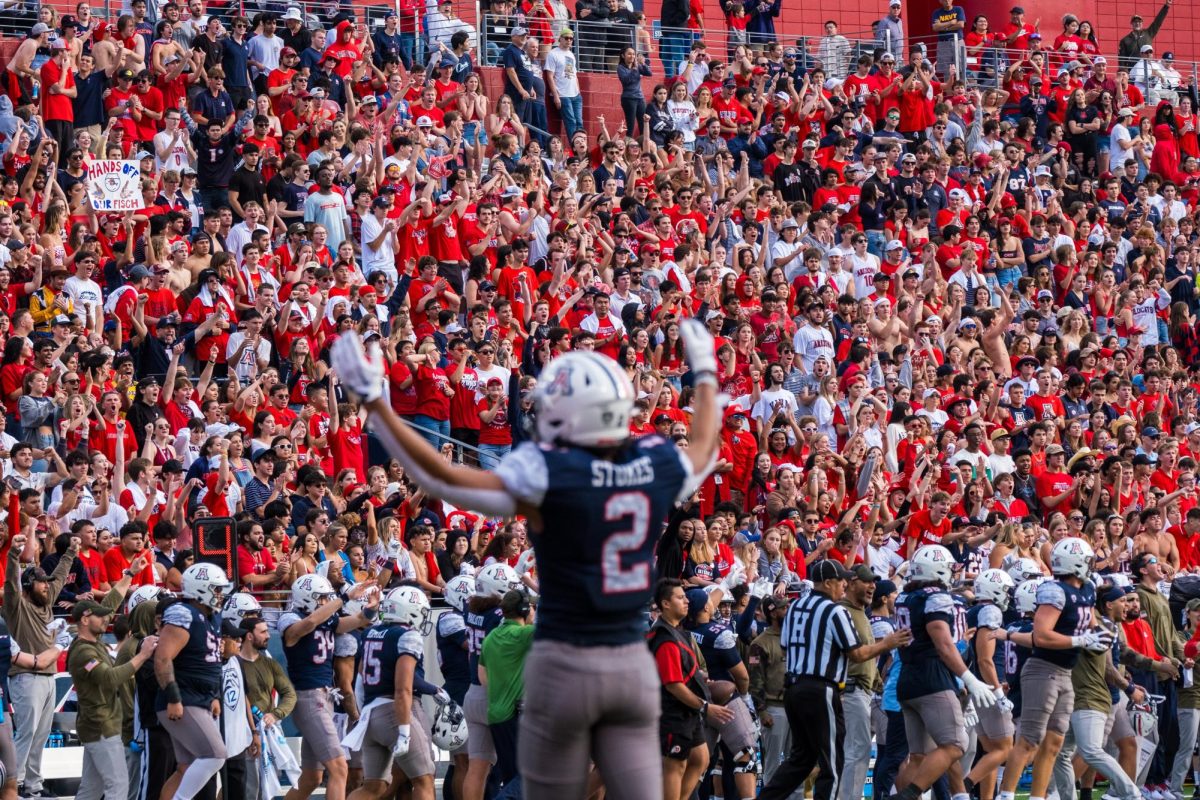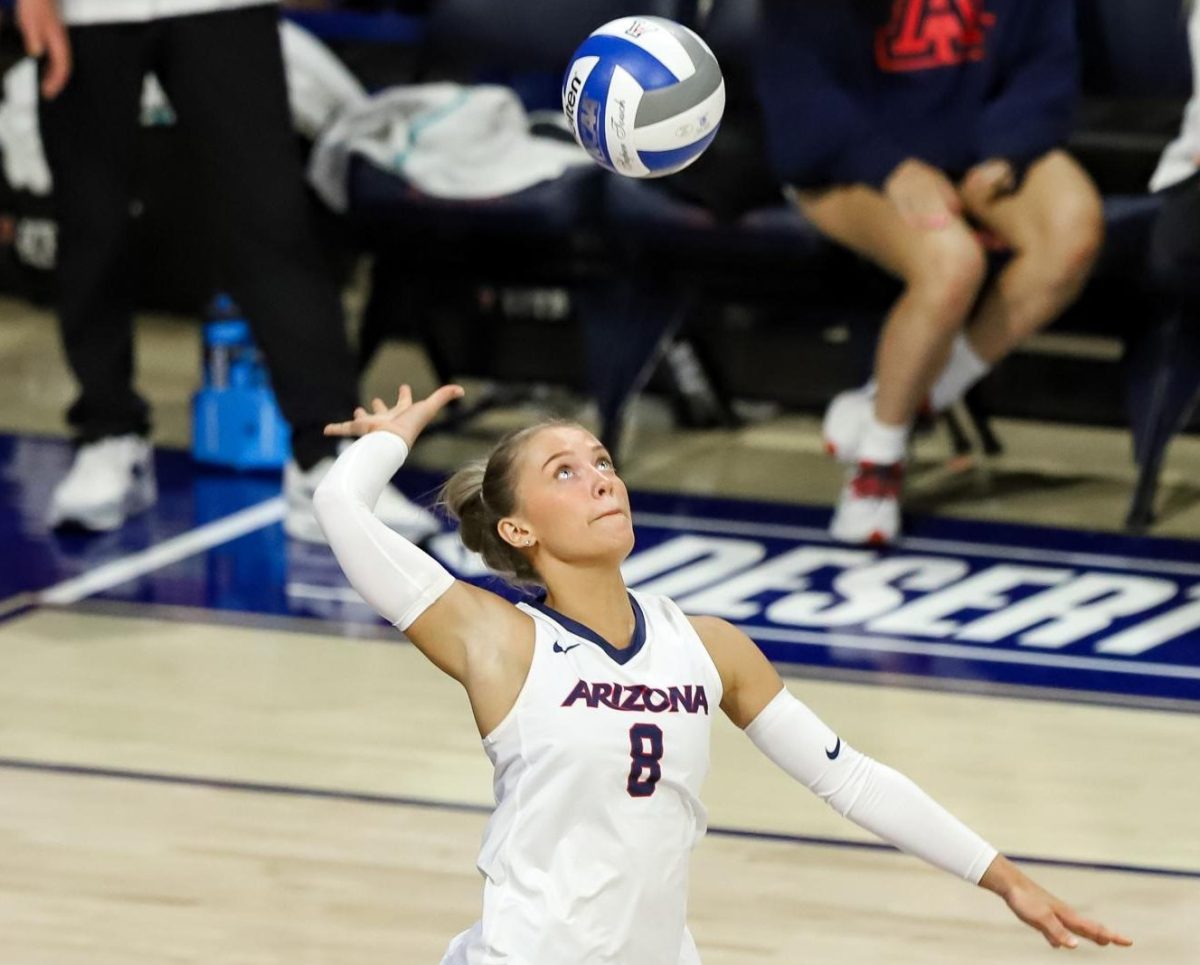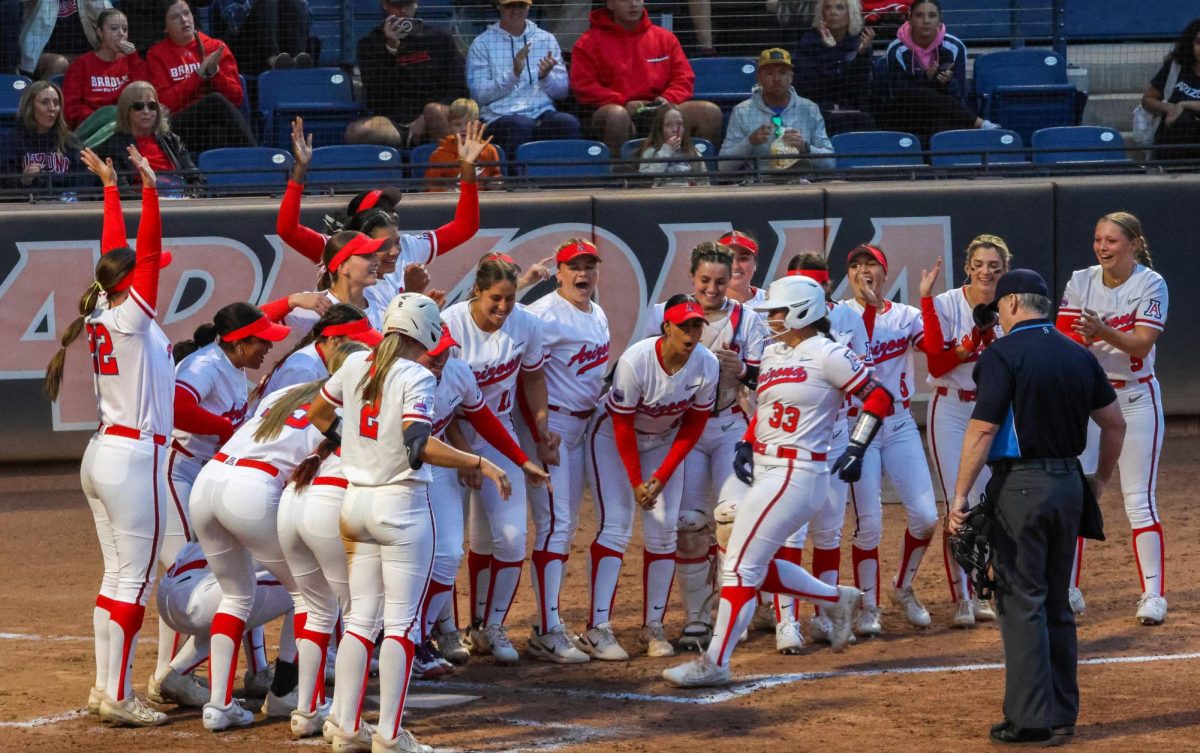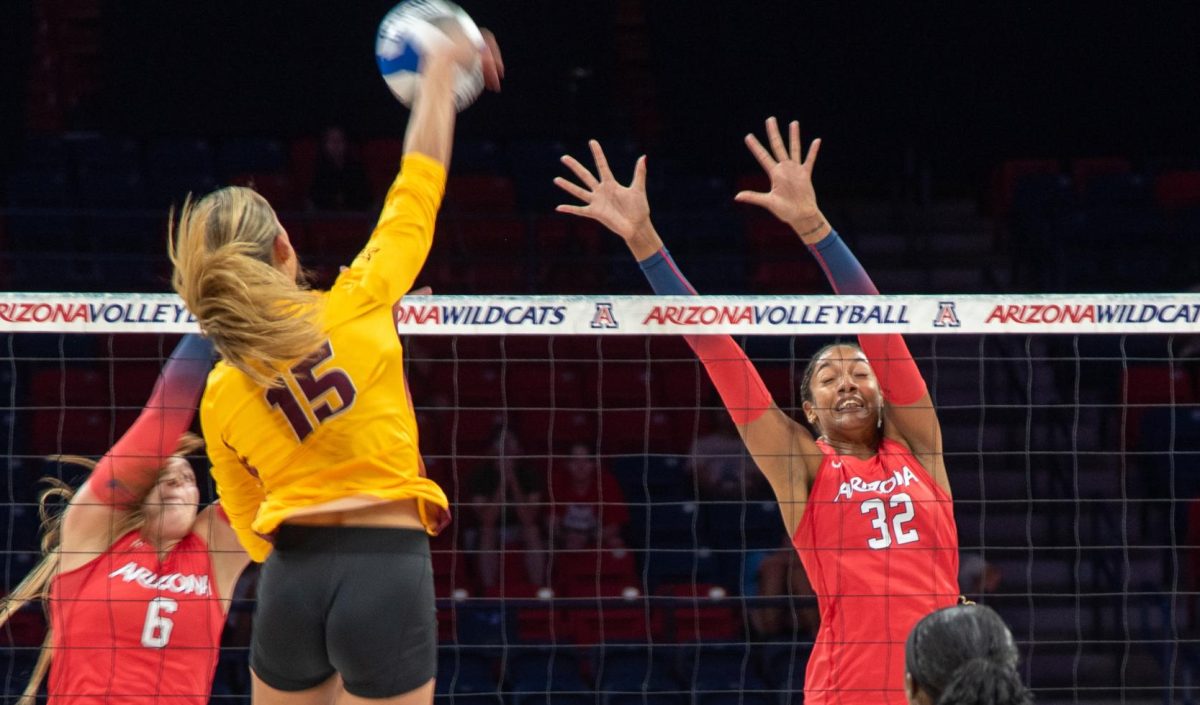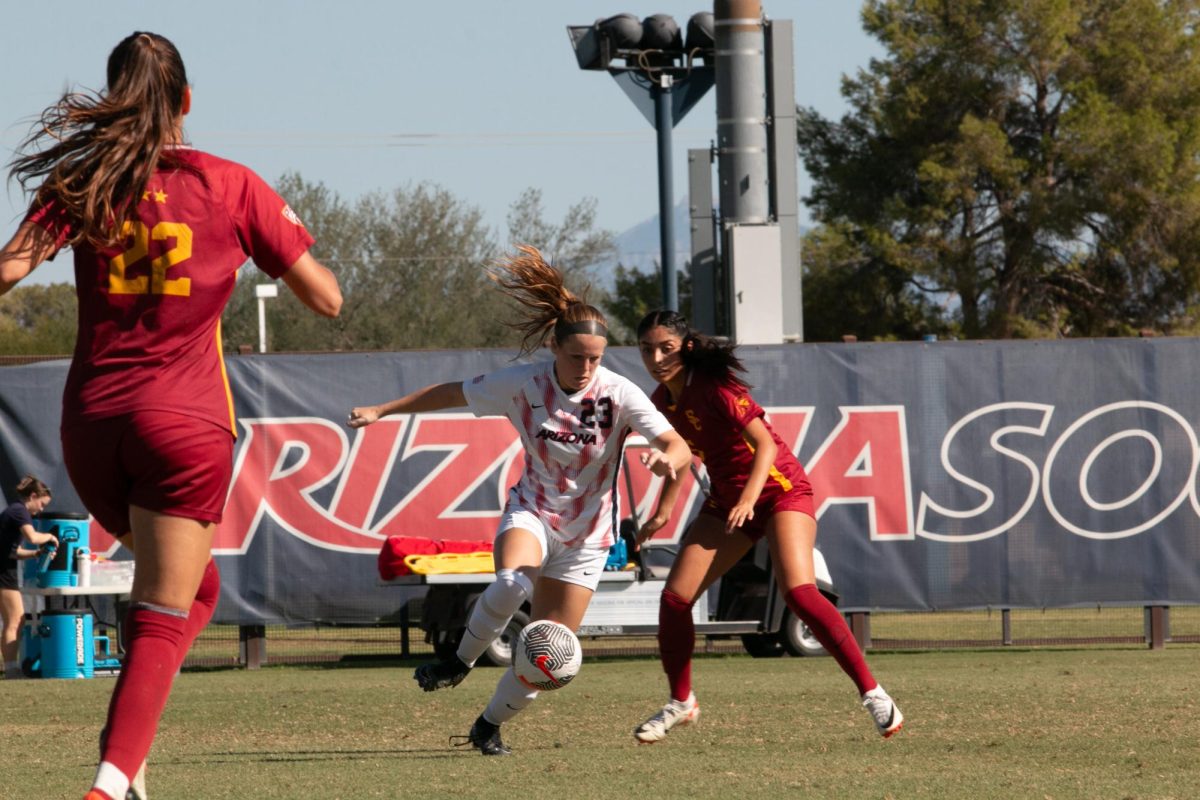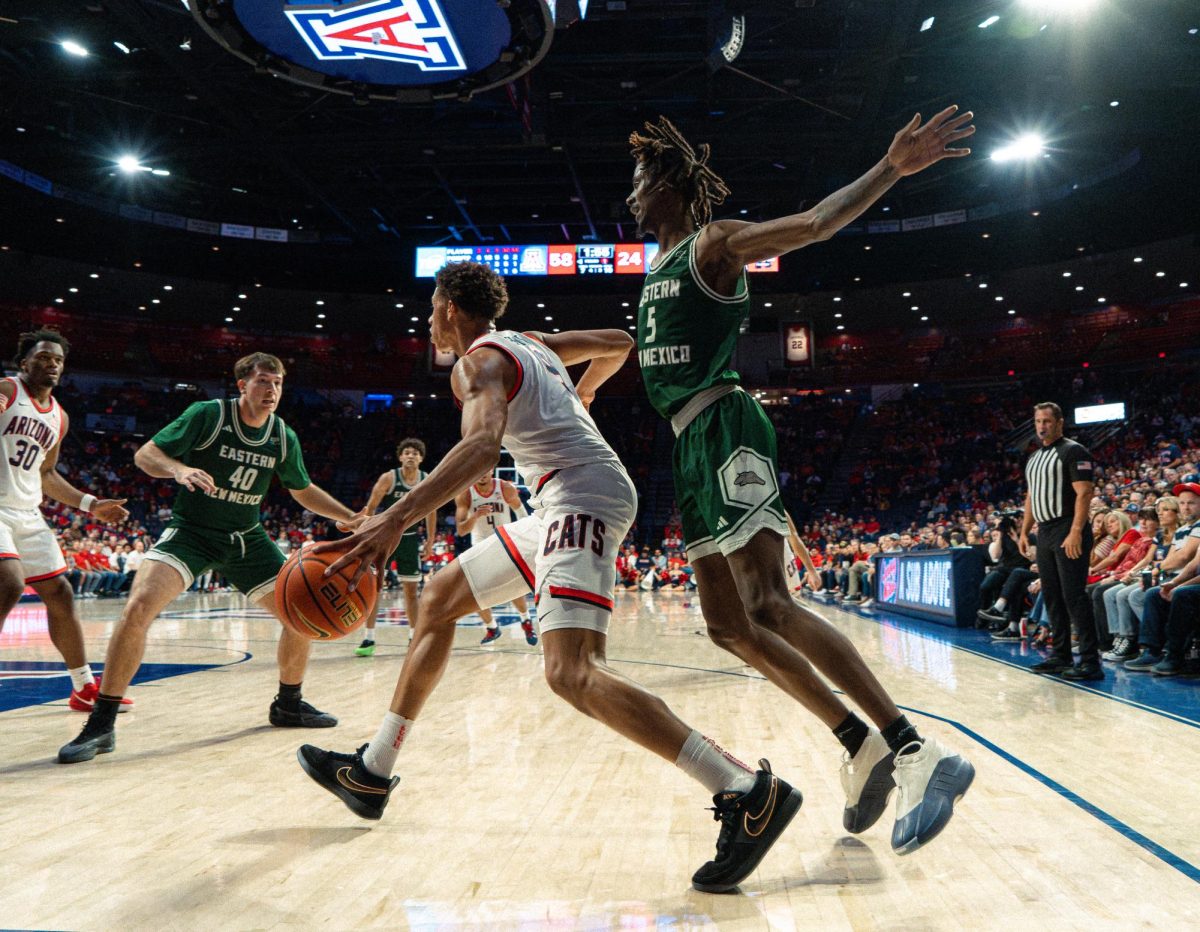Relevancy is a slippery slope for most teams in college football. One minute you are amongst the top ten in the nation, the next you are rebounding from a three win campaign.
Outside of traditional powers like the Alabamas and Michigans of the world, it is no easy feat to stay on the minds of fans for not only your school but also of your sport.
Arizona football is facing such a problem: to be or not to be relevant. They’re teetering on the edge of the latter. But they will have their say this season and for that we won’t dive into what they need to do, instead, we will display what is on the line in a very important year for not only head coach Rich Rodriguez, but for the entire athletic department.
First and foremost, football is the bread and butter of any school, sorry basketball, it just is. The revenue streams that come in for football can’t be matched by any other sport and every athletic director knows it.
It provides the biggest bang for your buck in regards to the games played versus the attendance and national viewing. Look to the NFL for an example. A preseason NFL game between Arizona and Dallas had higher ratings than the majority of playoff games in both Major League Baseball and the NBA.
If Arizona was a national power and could accrue the revenue it would need to compete at the highest level, well, they wouldn’t need a new athletic director.
Greg Byrne took off to Alabama to be a part of what is considered the premiere program in college football today, you can’t blame him. I mean, it’s Alabama. It’s having a chance at national championships year in and year out. Most importantly it is a huge cash cow for the school.

Dave Heeke, Arizona’s new AD knows this as well. He understands the path to financial freedom lays in the cleats that rip up the turf every Saturday. One only need to look at the finances to realize the impact football has on revenue.
With a non-conference schedule that resembled a mid-afternoon lecture in a warm classroom last season, coupled with seemingly endless blowout losses, the UA stands resembled a yard sale in the late afternoon Tucson sun, completely empty.
What was the impact? Well, over a $9.5 million loss in revenue, the first loss in 10 years according to Arizona Public Media and USA Today.
But is it a trend?
That remains to be seen. It is only scratching the surface of issues when football isn’t generating the funds necessary. Arizona being considered a basketball school is a nice thought, but it doesn’t maintain the level of income necessary to keep the other sports on campus alive. It does its best by selling out every home game and making runs in the NCAA tournament.
Keeping other sports afloat means paying quality coaches competitive salaries. Holding onto head baseball coach Jay Johnson by extending him to 2022 isn’t cheap. Neither is extending head softball coach Mike Candrea. Money has to come from somewhere and it hasn’t been from the Pac-12 who has fallen short on their promise to generate much higher revenue for the conferences schools.
In a report by Mercury News in May, Arizona was expected to receive $27.9 million from the Pac-12, short of the projected $29.5 million. That isn’t the big issue, so what is? The lack of a deal with DIRECTV and the audience that comes with it for one.
A bigger issue is the comparison against other conferences. The SEC generates roughly $10 million more for its schools, the Big Ten $7.5 million more and the Big 12 $5 million more. That is a large discrepancy. Multiply by five (the duration of time the Pac-12 Network has existed) and you can see how big of a problem that is.

So money has to come from somewhere and when the football team isn’t producing on the field it becomes a huge problem.
Staying relevant is key for Arizona. It affects virtually every sport outside of men’s basketball.
Renovations to the football stadium, swimming complex and building an indoor practice facility are only a few of the things that need to be fixed on campus. But with a lack of funding, those items are on hold.
In the words of Jerry Maguire, “Help me, help you!” Arizona football needs to help itself this season and rebound from a disastrous 2016. Doing so will pump up the revenue streams and should get the UA back to at least breaking even. Another season like last year could push the Wildcats deep into Mackovician-like irrelevancy that could take years to recover from.
Follow Saul Bookman on Twitter



